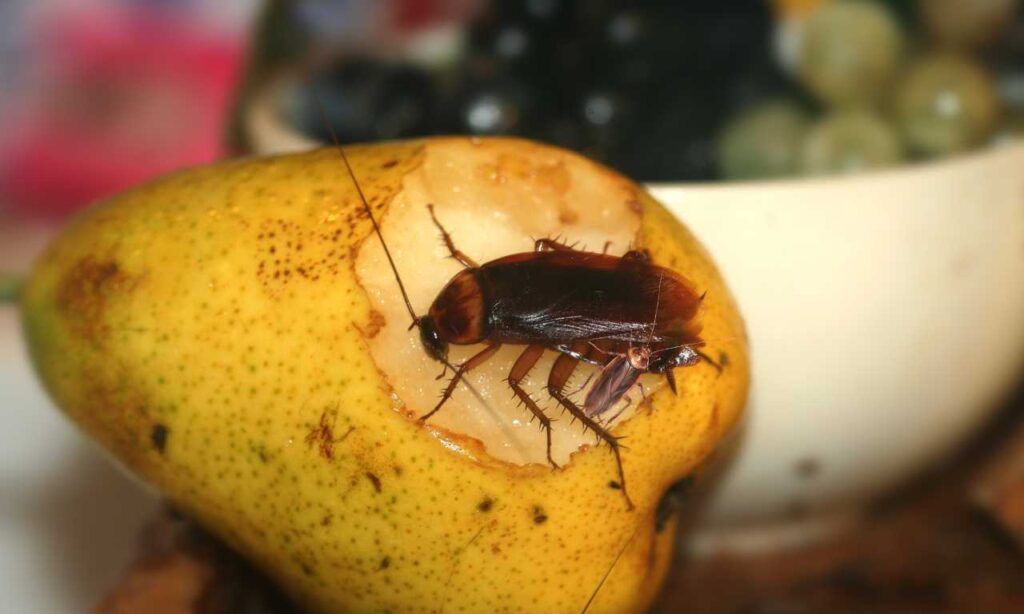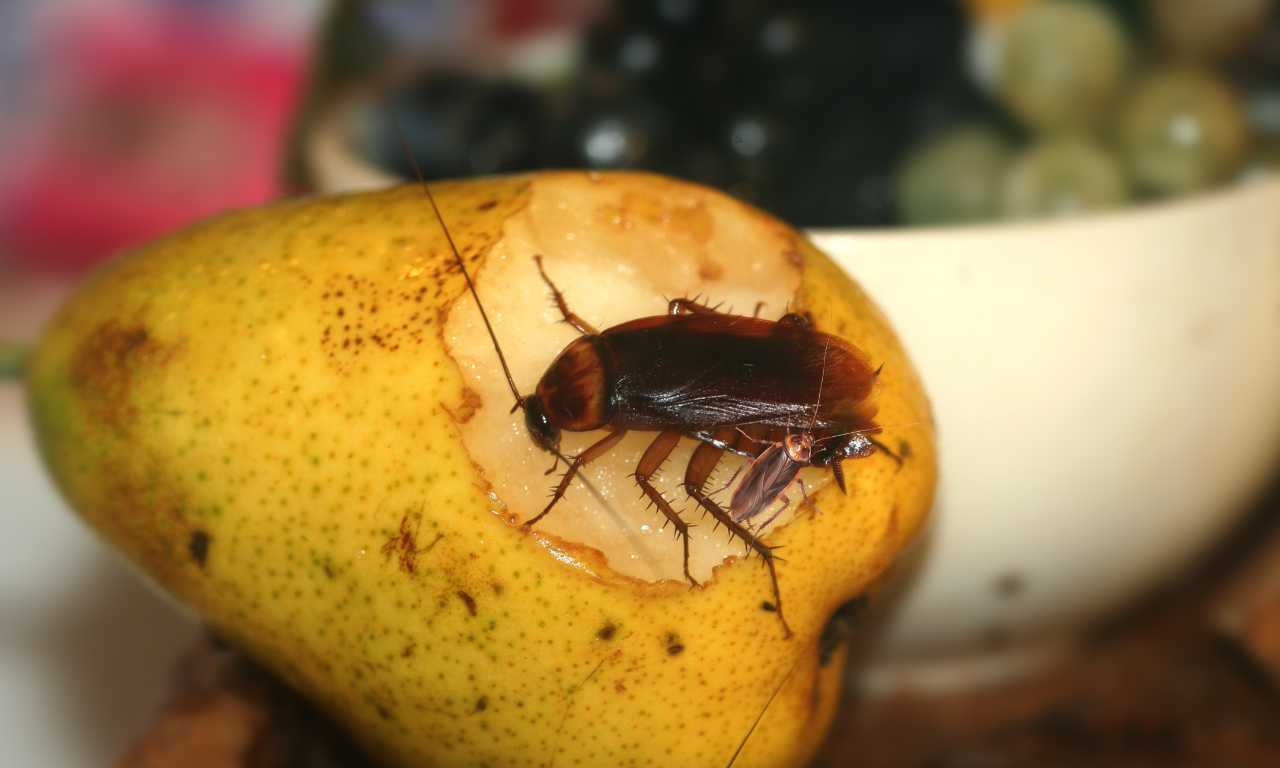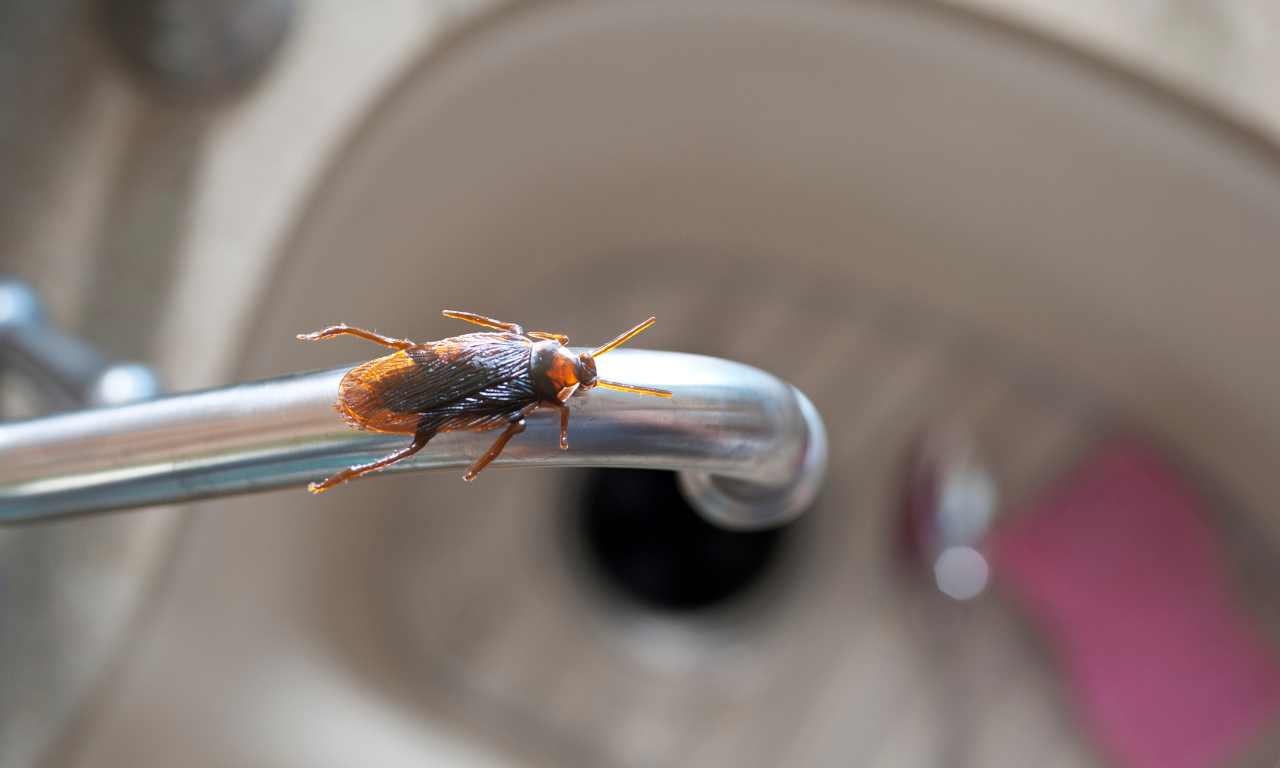
 Roaches are known to carry a variety of pathogens and bacteria on their bodies and in their feces, which can cause stomach problems if ingested.
Roaches are known to carry a variety of pathogens and bacteria on their bodies and in their feces, which can cause stomach problems if ingested.
They can also trigger allergies and asthma in some people. However, it is relatively uncommon for roaches to cause stomach problems in humans. In order for this to happen, a person would have to ingest a roach or its feces, which is not a typical occurrence.
It is more likely that a person would experience stomach problems as a result of an allergic reaction to roaches or the dust and debris left behind by roaches.
While it is possible for roaches to cause stomach problems, it is not a common occurrence. It is important to keep in mind that roaches are generally considered to be a public health concern due to their association with the spread of disease and because they can trigger allergic reactions in some people. If you have a roach infestation in your home or workplace, it is important to take steps to eliminate the infestation in order to protect your health and the health of those around you.
Overall, while it is possible that roaches can cause stomach problems, it’s not a common occurrence and the best way to prevent stomach problems caused by roaches is to keep your home clean and free of roaches. If you have a roach infestation, it is important to take steps to eliminate the infestation in order to protect your health and the health of those around you.
Can You Get Sick From Roaches In Your House?
Yes, it is possible to get sick from roaches in your house. Roaches are known to carry a variety of pathogens and bacteria on their bodies and in their feces, which can cause a range of health problems if ingested or inhaled. The most common health problems associated with roaches include allergies and asthma, but they can also cause more serious illnesses such as food poisoning, dysentery, and salmonella.
Roaches can spread disease by contaminating food and surfaces with their feces and body parts. They can also trigger asthma and allergies by releasing their feces, shed skin, and other debris into the air. When roaches infest a home or building, they can spread bacteria and viruses to the inhabitants, especially if they are present in large numbers.
Roaches can also carry diseases such as salmonella, shigellosis, and E.coli. They also can carry and spread harmful microorganisms such as Staphylococcus aureus, Streptococcus, and Klebsiella pneumonia. These microorganisms can cause serious infections, especially in people with weakened immune systems. Roaches also carry allergens on their bodies and in their feces, which can trigger allergic reactions and asthma symptoms.
It’s important to keep in mind that the symptoms of roach-borne illness can vary depending on the type of pathogen or bacteria involved, but common symptoms include fever, nausea, vomiting, diarrhea, stomach cramps, and headaches. If you suspect you may have been exposed to roaches or roach-borne illness, it is important to see a doctor for a proper diagnosis.
In order to avoid getting sick from roaches, it is important to take steps to eliminate and prevent roach infestations in your home. This includes regularly cleaning and vacuuming your home, storing food in sealed containers, and keeping your kitchen and bathroom areas clean and dry. It’s also important to seal any cracks or crevices in your home where roaches may enter, and to eliminate sources of moisture such as leaky pipes.
If you do have a roach infestation, it is important to contact a professional pest control company to help eliminate the infestation. They will be able to identify the type of roaches and recommend an appropriate treatment. Over-the-counter pesticides may not be effective against certain species of roaches and may even make the situation worse if not used correctly.
In summary, Roaches can cause a range of health problems if ingested or inhaled. They can spread disease by contaminating food and surfaces with their feces and body parts. They also can trigger asthma and allergies by releasing their feces, shed skin, and other debris into the air. It’s important to take steps to eliminate and prevent roach infestations in your home, and to contact a professional pest control company if you have a roach infestation.
What Kind Of Sickness Can You Get From Cockroaches?
 Cockroaches are known to carry a variety of pathogens and bacteria on their bodies and in their feces, which can cause a range of health problems if ingested or inhaled. The most common health problems associated with cockroaches include allergies and asthma, but they can also cause more serious illnesses such as food poisoning, dysentery, and salmonella.
Cockroaches are known to carry a variety of pathogens and bacteria on their bodies and in their feces, which can cause a range of health problems if ingested or inhaled. The most common health problems associated with cockroaches include allergies and asthma, but they can also cause more serious illnesses such as food poisoning, dysentery, and salmonella.
Allergic reactions are the most common health problems associated with cockroaches. Cockroaches release allergens into the air as they shed their skin and feces. These allergens can trigger allergic reactions and asthma symptoms in sensitive individuals.
Symptoms of cockroach allergies include sneezing, runny nose, watery eyes, and asthma symptoms such as wheezing and difficulty breathing. People with asthma, especially children, may experience increased asthma symptoms when exposed to cockroach allergens. According to the Centers for Disease Control and Prevention (CDC), cockroach allergens are a major trigger for asthma attacks, especially in inner-city areas where cockroach infestations are more common.
In addition to allergies, cockroaches can also cause food poisoning by contaminating food with their feces and body parts. Cockroaches are known to carry a variety of bacteria, viruses, and other pathogens on their bodies and in their feces.
These pathogens can be transmitted to food and surfaces, leading to food poisoning. The symptoms of food poisoning caused by cockroaches include nausea, vomiting, diarrhea, and stomach cramps. In severe cases, food poisoning caused by cockroaches can lead to dehydration and other serious health complications.
Cockroaches can also spread diseases such as salmonella, shigellosis, and E.coli. These bacteria can cause serious infections, especially in people with weakened immune systems. Salmonella is a type of bacteria that can cause food poisoning and other serious infections, including typhoid fever.
Shigellosis is a type of food poisoning caused by a group of bacteria called Shigella. E.coli is a type of bacteria that can cause food poisoning and other serious infections, including urinary tract infections, meningitis, and sepsis. Cockroaches can also spread harmful microorganisms such as Staphylococcus aureus, Streptococcus, and Klebsiella pneumonia. These microorganisms can cause serious infections, especially in people with weakened immune systems.
Staphylococcus aureus is a type of bacteria that can cause skin infections, pneumonia, and other serious infections. Streptococcus is a type of bacteria that can cause strep throat, pneumonia, and other serious infections. Klebsiella pneumonia is a type of bacteria that can cause pneumonia, urinary tract infections, and other serious infections.
It’s important to keep in mind that the symptoms of cockroach-borne illness can vary depending on the type of pathogen or bacteria involved, but common symptoms include fever, nausea, vomiting, diarrhea, stomach cramps, and headaches. If you suspect you may have been exposed to cockroaches or cockroach-borne illness, it is important to see a doctor for a proper diagnosis.
Overall, cockroaches can cause a range of health problems including allergies, asthma, food poisoning, and serious infections. The best way to prevent cockroach-borne illness is to keep your home clean and free of cockroaches. If you suspect you have a cockroach infestation or have symptoms of cockroach-borne illness, it is important to seek medical attention and to take steps to eliminate and prevent cockroach infestations in your home. This includes regular cleaning and vacuuming, storing food in sealed containers, and keeping kitchen and bathroom areas clean and dry. It’s also important to
seal any cracks or crevices in your home where cockroaches may enter, and to eliminate sources of moisture such as leaky pipes. Additionally, it is important to properly dispose of garbage and to keep outdoor areas around your home clean and well-maintained to reduce the chance of cockroaches entering your home.
If you are unable to eliminate a cockroach infestation on your own, it is best to contact a professional pest control company to assist you. They will be able to identify the type of cockroaches and recommend an appropriate treatment to eliminate the infestation.
It’s also important to be mindful of the potential health risks associated with cockroach infestations, particularly for people with weakened immune systems, young children, and elderly individuals. These populations are at a higher risk for serious illness or complications from cockroach-borne pathogens, so it’s essential to take extra precautions to protect their health.
In conclusion, cockroaches can cause a range of health problems including allergies, asthma, food poisoning, and serious infections. These can be caused by the cockroaches carrying pathogens and bacteria on their bodies and in their feces.
To prevent cockroach-borne illness, it is important to keep your home clean and free of cockroaches, seek medical attention if you suspect you may have been exposed to cockroaches or cockroach-borne illness, and contact a professional pest control company if you are unable to eliminate a cockroach infestation on your own.
How To Get Rid Of Roaches From Kitchen Fast?

- Clean your kitchen thoroughly: Start by cleaning your kitchen thoroughly, paying special attention to areas where cockroaches might be hiding, such as under the sink, behind appliances, and in cracks and crevices. Clean all surfaces, including countertops, cabinets, and floors, with a strong detergent or cleaning solution. This will remove any food residue and other debris that cockroaches might be attracted to.
- Seal all entry points: Inspect your kitchen for any cracks, crevices, or gaps where cockroaches might be entering your home and seal them with caulk or other suitable materials. This will prevent cockroaches from entering your home in the future.
- Use sticky traps: Place sticky traps in areas where cockroaches have been spotted. These traps will help you monitor the infestation and identify areas where cockroaches are most active.
- Use bait stations: Bait stations are an effective way to eliminate cockroaches. These stations contain a slow-acting poison that cockroaches will feed on, which will then kill them. Bait stations can be placed in areas where cockroaches have been seen or where they are likely to be found, such as under the sink, behind appliances, and in dark, damp places.
- Use insecticides: Insecticides can be used to eliminate cockroaches, but should be used with caution as they can be toxic to humans and pets. It’s important to use the right type of insecticide for the species of cockroaches you’re dealing with, and to follow the instructions on the label carefully.
- Eliminate moisture: Roaches thrive in moist environments, so it is important to eliminate any sources of moisture in your kitchen such as leaks, condensation and standing water.
- Keep kitchen clean: To prevent cockroaches from returning to your kitchen, maintain a clean and well-organized kitchen. Keep food in sealed containers, wipe down counters and appliances regularly, and take out the trash regularly.
- Professional extermination: If the infestation is severe, it may be necessary to hire a professional exterminator to eliminate the cockroaches. They will be able to identify the type of cockroaches and recommend an appropriate treatment, as well as provide ongoing monitoring and maintenance to prevent future infestations.
It’s important to keep in mind that eliminating cockroaches can be a challenging and time-consuming process. It’s essential to be persistent and consistent in your efforts to eliminate an infestation. It may take multiple treatments and follow-up inspections to completely eliminate an infestation.
In summary, getting rid of cockroaches in your kitchen involves a combination of cleaning, sealing entry points, using sticky traps, bait stations, insecticides, and eliminating moisture. It is also important to keep the kitchen clean and well-organized to prevent future infestations. If the infestation is severe, it may be necessary to hire a professional exterminator for effective elimination and prevention.
Welcome to my blog. I have been doing pest control for years since my house, garden and pets were always attacked by various kinds of pests and as a result I had to know proper pest control techniques that works. In this blog I share all the tips and tricks that I know and I hope you’ll find it helpful.
